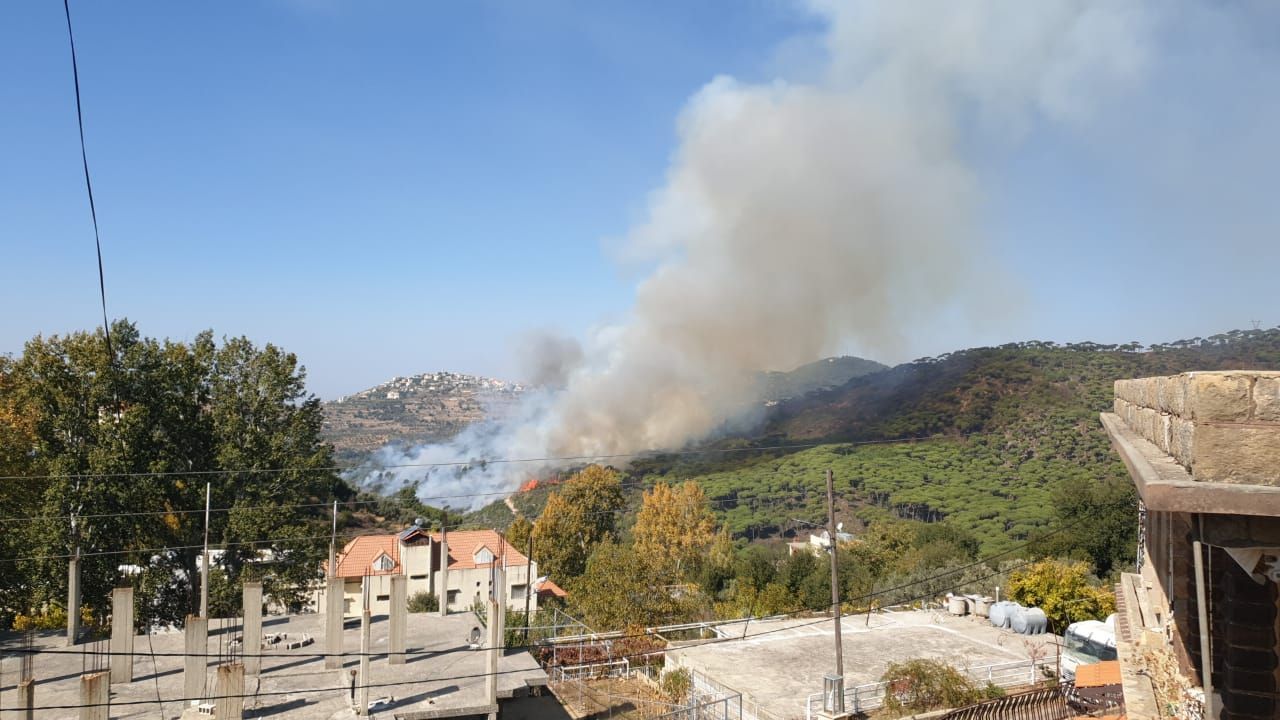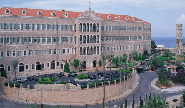
Since Monday, widespread fires have been sweeping through several regions of Lebanon, driven by dry winds, lingering high temperatures, and Israeli strikes in the southern part of the country.
On Tuesday, the General Directorate of Civil Defense reported that firefighting operations were ongoing across multiple areas. According to the statement, the fires were triggered both by Israeli strikes targeting zones in the Nabatiyeh and Baalbek districts and by weather conditions that accelerated the flames’ spread.
In southern Lebanon, Civil Defense teams have extinguished two major fires in the Rayhan and Qotrani mountains, triggered by Israeli bombardments, as well as another blaze in Chaara in the Baalbek district. Fires were also brought under control in the Jezzine governorate, in Qnane, Jarmaq, Ayshiyeh and Homsiyeh, with the latter caused by a burning electrical transformer. However, the fire stretching from Aaray to Bkassine in Jezzine remained active on Tuesday, with teams working to contain it, the statement said.
Civil Defense firefighters have also extinguished other fires in the forests of Chbeniyeh, as well as in the wooded areas of Kefarya in the Zghorta district and Debaal in Deniyeh. Rescue teams are also mobilized to contain a large fire spreading across Chhim, Mtelleh, Jaliliyeh, Daria, Zaarouriyeh and Hasrout in the Iqlim al-Kharroub (Chouf district).
The Civil Defense has reminded citizens to exercise caution, avoid lighting fires in dry grass, and immediately report any blaze by calling 125.
The fires have already destroyed large numbers of pine trees, olive groves, and vineyards across the country. Army helicopters continue operations to cool burned areas and prevent new outbreaks. Both President Joseph Aoun and Speaker of Parliament Nabih Berry have called for strengthened firefighting resources and improved coordination of rescue efforts.
Lebanese Environment Minister Tamara El-Zein has accused Israel of burning more than 8,700 hectares of land in the south of the country. She believes that all the fires were caused by humans, whether intentionally or not, and is calling for civil defense to be strengthened, warning and water storage systems to be developed, and severe penalties to be imposed on arsonists. Despite limited prevention projects, she highlights the glaring lack of resources and support in the face of this ecological disaster, which has been exacerbated by war and climate change.
According to Chadi Abdallah, Secretary-General of the National Council for Scientific Research, 7,147 fires have been recorded in Lebanon between the start of 2025 and November 10, including 6,900 affecting grassy areas and 637 impacting orchards and forests.
These fires, driven by a combination of human and natural factors—including armed conflicts, negligence, uncontrolled burning, prolonged drought, and strong winds—highlight Lebanon’s vulnerability in autumn, when dry vegetation and lingering high temperatures heighten the risk of blazes. The situation underscores the urgent need for stronger prevention measures and adequate resources to tackle a threat that has become increasingly recurrent.




Comments